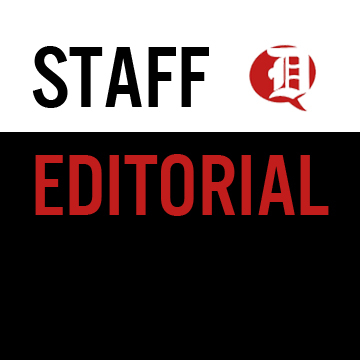
by the Editorial Staff
Jan. 20, 2022
It was a dark day for democracy on Jan. 6, 2021, as rioters swarmed the United States Capitol Building in an effort to stop the certification of President Joe Biden’s 2020 electoral victory.
Over 700 people have been charged with crimes related to the riot so far, according to Insider.
Many have been critical of Attorney General Merrick Garland’s approach in his investigation of the riot. Critics of Garland argue he has not done enough to pursue leadership involved with organizing the riot, and is too focused on prosecuting the people that were physically present at the Capitol that day.
While some may have wished for swifter justice, Garland has explained the rationale behind this methodical approach:
“We build investigations by laying a foundation. We resolve more straightforward cases first because they provide the evidentiary foundation for more complex cases. Investigating the more overt crimes generates linkages to less overt ones. Overt actors and the evidence they provide can lead us to others who may also have been involved. And that evidence can serve as the foundation for further investigative leads and techniques.”
This indicates that the Department of Justice is not only searching for all of those involved, but also taking the proper steps to do it.
On Jan. 13. 2021, the Department of Justice unsealed seditious conspiracy charges against Stewart Rhodes, the leader of the far-right group named the Oath Keepers. Rhodes was arrested the same day.
The indictment references messages sent by Rhodes to other Oath Keeper members, where he is quoted as saying, “We aren’t getting through this without a civil war,” and “We will have to do a bloody, massively bloody revolution against them.”
Prosecutors say Rhodes and other Oath Keeper members held paramilitary training sessions and transported weapons and other equipment to Washington in preparation for Jan. 6.
Evidence like this helps to dispel some narratives that the insurrection was a spur-of-the-moment, spontaneous event.
Hindering the execution of a U.S. law will likely be what condemns Rhodes in court, as the evidence suggests that he was crucial in the organization of the insurrection, with the intent of stopping the certification of the election.
Charging Rhodes with seditious conspiracy is significant, as it is relatively rare in the U.S. legal system. Seditious conspiracy can be difficult to prove in court, and the fact that the Department of Justice is proceeding with this charge indicates a confidence that they can prove it.
They are sending a message to those who helped organize the event that they will not stop at physical participation and that they will not shy away from the prosecution of anyone involved to the fullest extent of the law.
The attack on the Capital was a direct attack on democracy, and anyone who contributed to it should face the consequences for their actions. Charging Rhodes with seditious conspiracy is just, considering how heavily he was involved with the organization of the Jan. 6 riot; a riot that attempted to disrupt a fair election.
